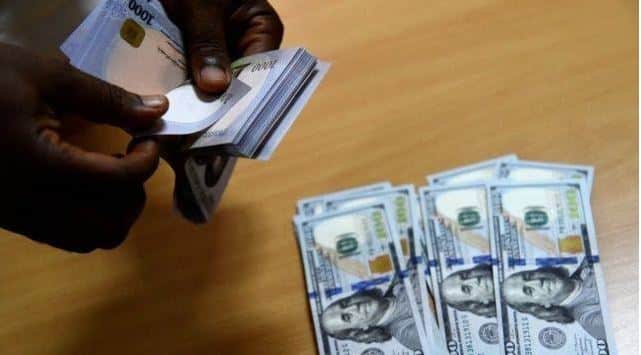What would you rather have — $5,000 in a stable foreign country or ₦30 million in Nigeria? That’s the question stirring heated debate across TikTok and social media after Nigerian content creator Eleanya Ucheya shared a viral video comparing life abroad with the realities of doing business at home.
In the clip, which was spotlighted by Punch Online, Ucheya argued that $5,000 overseas might stretch further than ₦30 million in Nigeria due to the latter’s harsh economic conditions, unstable policies, and unpredictable risks.
“One bad policy can just bring your money down… Even as a business person, maybe you have ₦30 million, do you know that one fire outbreak can reduce you to nothing because no insurance,” he said.
For many Nigerians, Ucheya’s blunt assessment hit close to home — especially as the naira continues to struggle, inflation bites deeper, and young entrepreneurs face rising costs, unpredictable taxes, and weak infrastructure.
But how true is the claim? What does financial security actually look like in both scenarios?
💸 Breaking Down the Numbers
Let’s start with the math. At current exchange rates (₦1,500/$), ₦30 million is roughly equal to $20,000. That’s four times the $5,000 figure Ucheya cites. So technically, ₦30 million should afford more comfort — but context is everything.
In Nigeria, ₦30 million could buy you:
- A plot of land or a small home in a mid-tier city
- A vehicle (brand new or used)
- Enough to start a small business (retail, logistics, agri-processing)
- Basic private school tuition for a child
- Short-term comfort, but limited safety nets
But these assets are vulnerable to:
- Multiple taxation (state, local, informal)
- Policy swings (currency redesigns, subsidy removals)
- No business insurance
- Unstable power and infrastructure
- Security risks for both people and property
Meanwhile, $5,000 abroad won’t buy property, but it gives access to:
- Functional healthcare and insurance
- Credit facilities to buy cars or equipment with low upfront costs
- Consumer protections that reduce financial exposure
- Social systems (public transport, utilities) that stretch purchasing power
- Peace of mind, even if money is tight
“That person with $5,000 abroad can use that money to buy the latest car… maybe in three years’ time, he takes the car back to them. He’ll just be paying small money,” Ucheya explained.
🏡 Cost of Living vs Quality of Life
Living in Ghana, Canada, the UK, or Germany with $5,000 likely means you’re still budgeting tightly — but you’re operating in a system that works. Roads are fixed. Electricity is stable. Hospitals respond.
In contrast, ₦30 million in Nigeria puts you in an elite percentile, but there are no guarantees. One illness without insurance, one fire without coverage, one robbery or government raid — and you’re back to zero.
🧠 It’s Not Just Money — It’s Systems
What this debate reveals isn’t really about currency — it’s about the systems behind the money. In Nigeria, ₦30 million gives you more material control but less systemic protection. In many parts of the diaspora, $5,000 may be limited, but it exists in an ecosystem that protects, stretches, and multiplies it.
This is why many agree with Ucheya — not because $5,000 is objectively more than ₦30 million, but because $5,000 is more predictable, secure, and backed by functioning institutions.
📣 The Bigger Question: What Do Nigerians Really Want?
For young Nigerians contemplating whether to build at home or “japa” abroad, Ucheya’s video is a mirror. It forces a tough look at what true security means in 2025 — and whether money alone is enough without systems that protect it, grow it, and reward hard work.
In the end, it’s not just about naira vs dollars — it’s about the cost of peace of mind.

